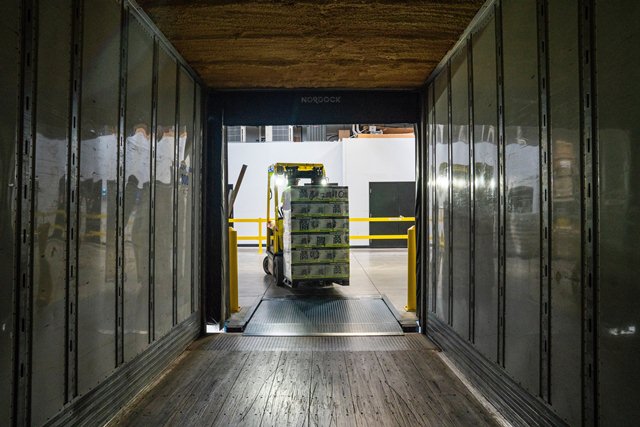 The coronavirus outbreak is not only already making an impact on the logistics and supply chain sectors, it is also exposing the lack of resilience of many modern supply chains, according to a new analysis from Transport Intelligence (Ti).
The coronavirus outbreak is not only already making an impact on the logistics and supply chain sectors, it is also exposing the lack of resilience of many modern supply chains, according to a new analysis from Transport Intelligence (Ti).
Air cargo has already been hard hit with some airlines suspending all services to China, where the novel coronavirus first emerged, said the analysis by Ti, a leading logistics and supply chain research and consultancy service provider.
Lufthansa and British Airways have ceased flights until at least February 9, as have many other passenger airlines, amid fears about the spread of the virus and government travel advice against visiting the country. US airlines—Delta, United and American—have been the most recent to cancel their services.
“Airlines operating freighters are not affected, but the reduction in capacity will mean major backlogs when industry starts back up after the holiday (if indeed it does),” said the report.
Movements of air cargo within China have also been affected as many inbound distribution services are not functioning.
At present, the shipping industry is biding its time before making wholesale revisions to services. The Chinese New Year has already led to reduced capacities, and lines are adopting a “wait and see” attitude before blanking additional sailings, said Ti. Forwarders have been worried about footing the bill for container demurrage if boxes are left in ports, although some shipping lines have assured customers this won’t happen.
The situation has been somewhat ameliorated by the weak demand over the previous few weeks. That combined with the New Year holiday has meant that shipping lines have already acted to reduce capacity by removing sailings in February and March.
For express parcel, in and around Wuhan, China, the epicenter of the outbreak, the domestic express sector is still working, collecting and delivering medical materials and “life necessities.” Packages and mail are being routinely disinfected although the chances of parcels transmitting the disease are very small.
In terms of international consignments, the postal networks’ international express courier service has been suspended, and DHL is not accepting shipments to Hubei Province. Large volumes of face masks and other medical peripheries are being shipped to China by the main international express operators free of charge to help alleviate the crisis.
The report said supply chains, which provide the backbone to the modern global economy, “may well prove to be its Achilles heel, should there be an incidence of a global pandemic of disastrous proportions. Stocks which ran down quickly would be impossible to replace, magnifying the hardships faced by consumers.”
“It is still far too early to tell what the consequences of coronavirus will be to supply chains, the logistics industry and the wider economy. The chances are that the crisis will pass and its impacts will be mitigated by travel bans and extended holidays. This may provide a short downturn in the quarterly results of many global companies, but little more,” Professor John Manners-Bell, Ti’s CEO, said.
“However, this outbreak must be a warning to politicians and all in the industry that many modern supply chains lack resilience. A more virulent disease could have far worse consequences unless actions are taken to reduce systemic vulnerability.”





